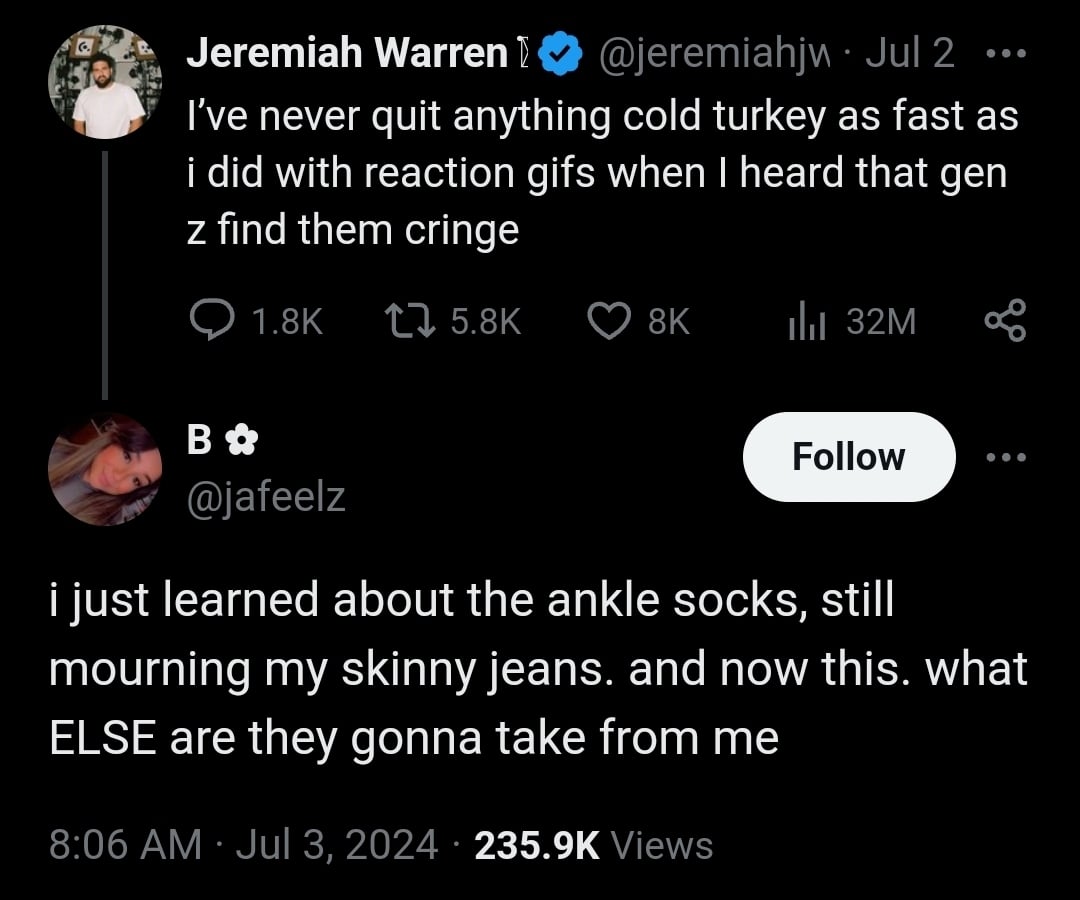this post was submitted on 04 Jul 2024
272 points (90.2% liked)
People Twitter
4848 readers
1590 users here now
People tweeting stuff. We allow tweets from anyone.
RULES:
- Mark NSFW content.
- No doxxing people.
- Must be a tweet or similar
- No bullying.
- Be excellent to each other.
founded 1 year ago
MODERATORS
you are viewing a single comment's thread
view the rest of the comments
view the rest of the comments

You're lying. You're only supposed to use "an" before an word that begins with an consonant.
Of course. Silly me. I‘m not an native speaker, so excuse my mistake.
No you were correct. Commenter above was joking or maybe just wrong. It should be “an apple,” “a pear,” etc.
Your written English is better than most native speakers.
what I love about it is that it isn't exactly "when the following word starts with a vowel", but rather when it sounds like it starts with a vowel, regardless if it does or not.
my favourite example is "herbs". In some versions of English, you say her-buh, so it would be "a herb". Some parts of the world, the 'h' is silent, so it's pronounced "erb", and would "an herb".
that concludes today's language lesson!